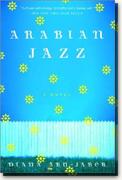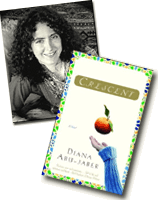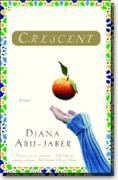Ruminating on his time in Iraq, Nathan says, “The closer I was to physical things, the closer I was to the soul”. Does this statement not define the essence, the symbiotic nature of food and feelings?
Definitely. I feel like there’s these fascination with spirituality in the New Age world, yet we go on polluting the planet, overpopulating, and torturing ourselves with weird diet plans. It seems critical that if we want to care for ourselves spiritually that we must do it by caring for our bodies.
As for Nathan, can you speak to his character, his distance from the world and his constant watching as life and love evolve around him?
He’s evocative for me of a certain type of person that I’ve grown up with and have seen in my classrooms. There are a number of young people who seem very disaffected to me—their families of origin are fractured; they have almost no sense of cultural legacy, and they’re very frustrated, uncertain, and searching for a stronger sense of continuity and meaning. Like Nathan, many of them find a sense of self through traveling and living among other cultures. Nathan tries to fashion an identity for himself by attempting to own or capture this other country—he’s a photographer, and the process of photography-- which fascinates me-- has always seemed very much about seizing things. In many ways strikes me as a very colonial thing. I don’t think it’s accidental that many peoples believe that photography steals the soul.
When describing the citizens of Iraq, you write, “living under a dictatorship…their inner selves stay alive.” I found this one of the most moving and important statements in Crescent. Can you discuss this manner of adjusting to difficult circumstances?
This is something I’ve observed in countries and among communities where there’s external pressure to conform to a tyrant, an elite cadre, or a rigid belief system. People either give in – a sort of Stockholm syndrome of identifying with the oppressor—or they go inside. A parallel life develops—it’s furtive and completely private, but it can still be incredibly rich and productive. You see all sorts of amazing poetry, imagery, film, and so forth that comes from people enduring ongoing, systematic suppression and censorship. I think of a work like The Autobiography of Anne Frank—written in secrecy with such beauty and wisdom. Censorship will always ultimately fail, because human creativity is much more powerful, resounding, and enduring than the forces of oppression.
My attraction to the Middle East began with Naguib Mafouz (The Cairo Trilogy) and Adhaf Soueif (The Map of Love). Crescent has added to that cultural appreciation. That said, is your novel not much more than a love story between a man and a woman?
Those are wonderful works and I’m honored if I can add a little to their rich legacy. It’s my hope for Crescent that while it has a strong cultural profile that it transcends its own cultural agendas. I intended for that novel to give readers both a social tableau as well as a basic human story about love and fear and jealousy that resonates no matter what readers’ own background or beliefs might be.
The students in the café represent exiles in the midst of their new lives, their yearning for home a constant. Does Sirine see the patrons differently once she has awakened to their concerns through her exposure to Muslim women?
She begins to understand more of the nuances and private struggles of the students’ lives—especially the sense of loneliness and the search for community and longing that these young men undergo. The Muslim women are so strong and independent and there’s such a wide variety of experiences among them, that I think Sirine begins to sense that there’s even a place for someone like herself there, that there’s no one right way to claim one’s heritage.
 At the beginning of each chapter, there is the continuing tale of the adventures of Abdelrahman Salahadin. What is the importance of this shadow parable to the story?
At the beginning of each chapter, there is the continuing tale of the adventures of Abdelrahman Salahadin. What is the importance of this shadow parable to the story?
I grew up about big time story-tellers—my father and my uncles loved to regale us with jokes and fairy tales and reminisces and all sorts of wonderful yarns. Like food, story-telling was a tremendous part of my cultural education and so I wanted to try and convey a little of the flavor of that experience by having Sirine’s uncle tell an ongoing tale. It was important to me that this story contain elements of the oral tradition, the fluctuations and surprises and personality of voice, as opposed to the clean, more impersonal quality of a traditional narrative. And the story of Abdelrahman Salahadin then becomes a sort of mirror to the larger “real-life” story of Sirine and Han; it’s meant to be a reflection upon the themes and motifs of their experiences. And because I believe that such tales can often cut to deeper levels of truth and insight, it’s also there to provide the critical key to the characters’ own struggles and uncertainties.
Sirine’s world expands when Han reveals his story and later, when she learns of Nathan’s past in Iraq. Do you see her as typical of most Americans, well-meaning, but uninformed?
I wish Americans were better informed about their dealings with the rest of the world, but I have to include myself in the same critique. I keep an eye on the news, but find it difficult to find the time to read deeply about current events. And the problem is that I do think this is a very risky and compromised way to try and live in the world. Americans are well-meaning—I believe in the fundamental benevolence of all people, actually—though I’m sure there’s plenty out there who might think I’m a dope for feeling this way. But unfortunately, good intentions won’t carry the day. Passivity is a sort of luxury that I don’t believe we can really afford any more-- there is simply too much suffering going on. It’s critical for all of us to actively educate ourselves about other cultures, to read the newspaper, to write to our representatives, to read more beautiful books like Reading Lolita in Teheran, and Dreams of Trespass, and, well…Now I’m getting on my soap box!
The emotional balance of the novel shifts once Han begins his revelations. Do these revelations and the consequences of Nathan’s actions allow the reader insight into the depth of the story?
Yes, in a sense the novel moves from the mysteries of romance to the clearer light of revelation and discovery. Han has to risk telling the truth—as do Nathan and Sirine—if he ever wants to have a genuine relationship or be at peace with himself. It’s frightening for him to make himself vulnerable, but at that point, he realizes he has no choice—it’s all or nothing. And this, I hope, moves Crescent into deeper levels of character motivation and action. There’s more going on with these characters than meets the eyes. Before that point there’s just a premonition of such layering, but then Han confirms it.
In my review, I compare you to Alice Hoffman, a prolific writer of lyrical prose. Are you familiar with Hoffman, and if so, how do you feel about my representation?
I’m flattered because I’ve heard great things about Hoffman’s work, but unfortunately I haven’t read her (but now I’ll have to!).
I have phrased my questions as a reader, rather than from an academic approach, avoiding more esoteric literary comparisons, although I am quite aware of your qualifications. Do you mind this reader-friendly approach if it makes you more accessible to your readers?
Not at all—I think these questions are wonderfully thoughtful and provocative. I’m having to really work to answer them! I’m often startled by the questions that readers come up with—which is the most fabulous thing. Novelists spend so much time holed up inside their heads and their work that I find it can be shattering and thrilling to have a sustained session of thoughtful questioning.
I believe Crescent is a significant contribution to the ongoing dialog of cultural differences and similarities. Have you any comment in this regard?
Thank you for this kind observation—I hope that it’s true. It’s my aim to try and write something that may help start conversations, get people examining preconceptions or asking questions. A woman wrote to me after Crescent came out and said, Thank you for writing this—I’ve never thought about Iraqis as having mothers or babies before! And I was happy that she’d had that moment of understanding and connection. It’s such a basic piece of information, but the media spin can be so powerful and flattening that it takes a great deal of work to preserve human richness and commonality.
Is there anything I have failed to ask that you would like to address in this interview?
This was a fabulous assortment!
I am anxiously anticipating your next venture. Do you have something in the works, and if so, can you share some of the details with us?
My next book is a memoir called The Language of Baklava, to be published in Spring of 2005. It’s a sort of compilation of memories about growing up in my multi-cultural, food-crazy family and then, sure enough, each chapter contains my father’s recipes. It’s simple Arabic home cooking, but really wonderful food! (If I do say so myself…)
Any words of advice to aspiring writers?
TDo everything you can to create a writing life for yourself. To me that means: read constantly and thoughtfully; have a place and a time where you go to write and make that sacred; write every day; get other’s opinions on your work, and revise carefully and deeply, but don’t make yourself nuts.
I hope that helps—it can be terribly painful to be a writer, but its rewards are overwhelming.



